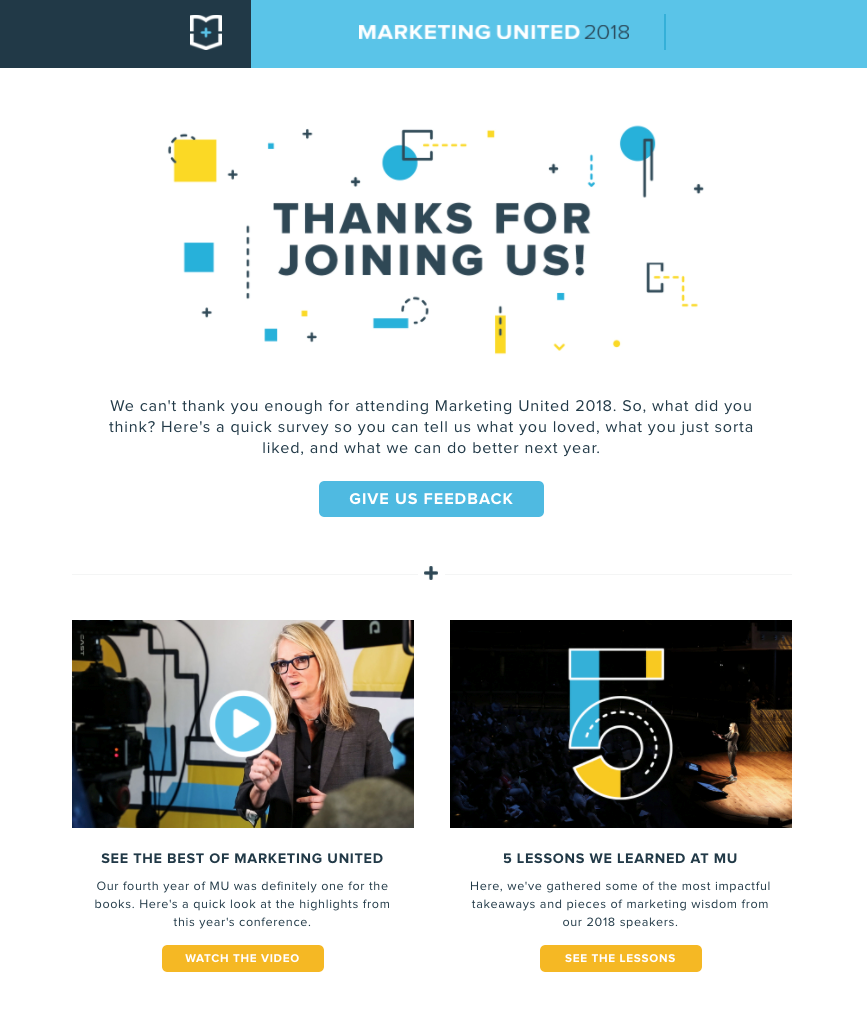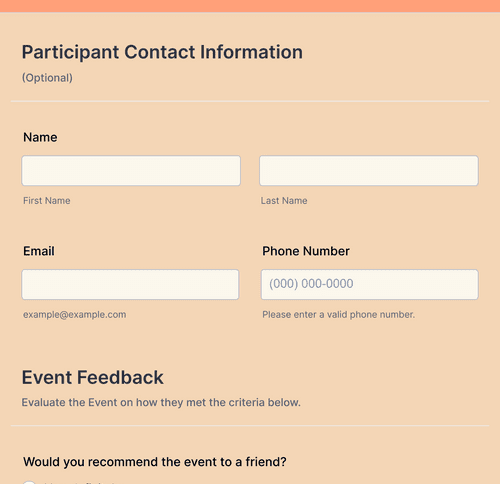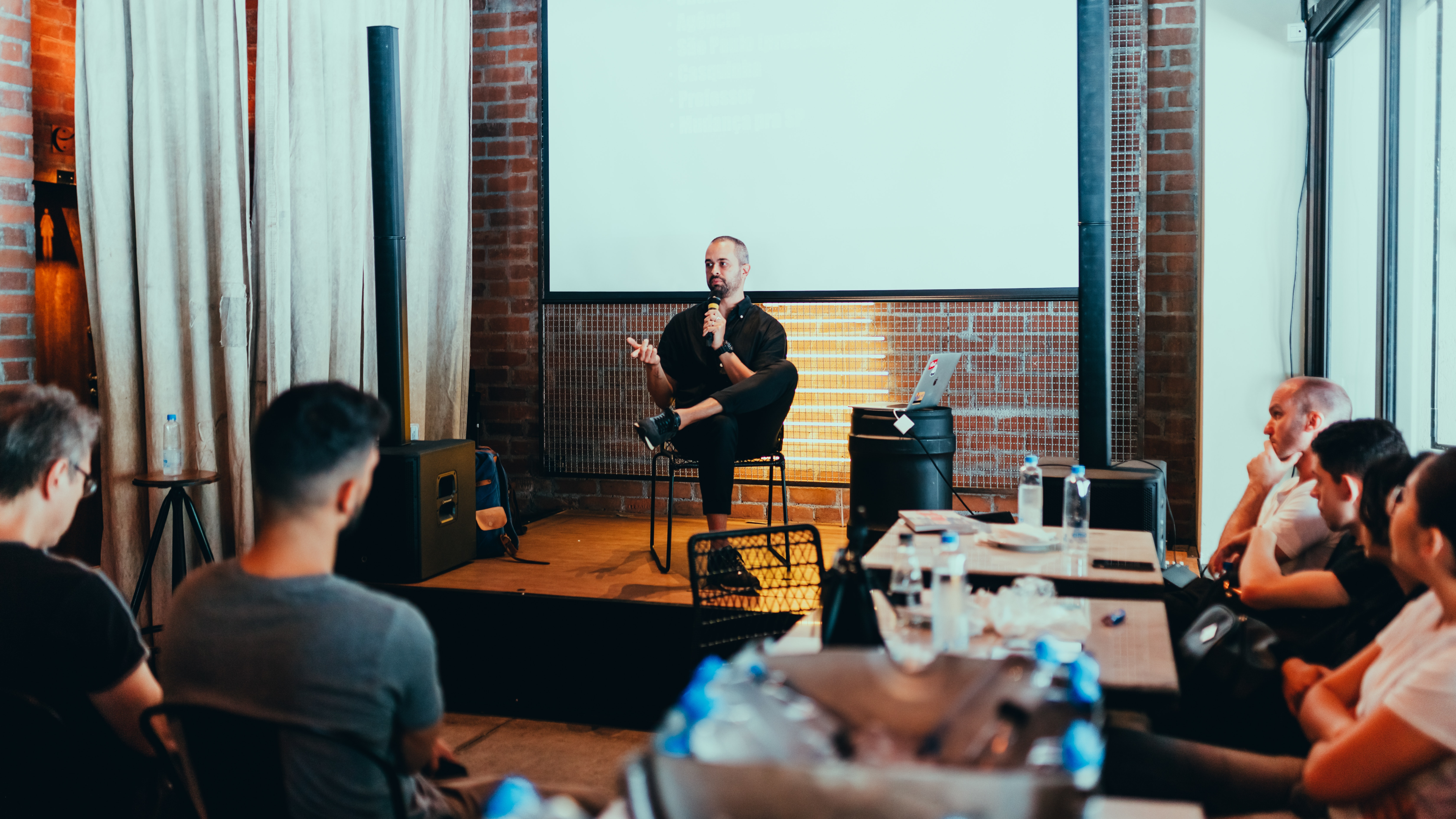
Assess Your Events Success through These Post-Event Evaluation Questions
Do you want your conferences, meetups, webinars, and virtual events to be packed with attendees every time? Get inside the minds of your attendees!
You can accomplish this challenging endeavour via survey questions.
By leveraging pre and post-event surveys, you can learn what your attendees think about your summer event, how they discovered it, and what they enjoyed the most about it. Surveys can come in handy in measuring attendee satisfaction, thereby assisting you in figuring out ways to improve your event marketing and identify what is working and what isn’t.
Almost 90% of virtual event organizers rely on surveys to gauge attendee satisfaction. To further measure the event’s success, the experts use both attendee engagement and satisfaction rates as Key Performance Indicators or KPIs. This demonstrates why prioritizing surveys is crucial.
However, you cannot go about asking anything and everything in your post-event evaluation questionnaire. It needs to be designed with post-event survey questions that matter or at least allow you to obtain valuable data down the line.
Dive into this blog to uncover a list of crucial questions to ask in a post-event survey. But first, let’s clearly understand.
Types of post-event survey questions
There are several types of post-event survey questions that you can include in your post-event evaluation questionnaire, including the following:
- NPS – are multiple-choice questions requiring the participants to rate something on a numeric scale. The resulting value of such questions calculates the Net Promoter Score.
- Open-ended questions – These types of questions are challenging to analyze en masse. However, they end up providing valuable qualitative feedback.
- Yes/No questions – These types are binary and often follow open-ended questions. Yes/No questions require the usage of conditional logic from the participant’s end.
In general, most surveys combine all three types of survey questions. But, it is up to you to identify the best use of these survey question types for your post-event survey.
That said, it is time to move forward and determine what questions you can add to your post-event survey to obtain valuable data.
Post-event survey questions for the attendees/participants

Source: LiveAgent
1- Was the Event Relevant and Useful?
The number one thing you should do is ask your attendees about their overall experience of the event. It is crucial to determine whether the event was useful and relevant for the participants. This lets you know if you can expect them to return for more.
You can keep this question subjective-based to obtain a brief answer to your query. This way, you will know if the information provided at the event was useful for them. Did the attendees learn something new? Were they able to implement their learning from the event into their workflow yet?
Based on the type of event you are holding, this question can be an excellent way of determining whether or not your attendees got their money’s worth!
2- How likely would you be to attend our events in the future?
Adding this question to the post-event survey will help you determine how many people are interested in staying up to date with the events you plan to organize in the future. If the attendees are generally satisfied, they will say yes. If they weren’t as pleased, they might say no.
Regardless, this question will likely offer insight into how well you marketed the event and sold your brand as a trustworthy and authoritative leader in the industry.
3- What did you most enjoy about today?
Keep this question open-ended so the participants can describe everything they liked about the event and why.
This question can assist you in identifying what you did right and what experiences the attendees value the most at your event. This information can come in handy in planning future events such as events that promote productivity while being sustainable.
Plus, you can find out what most of your attendees want to see again or agree with.
4- Would you recommend our events to a friend or colleague?
It is human nature to suggest and recommend things to their near and dear ones when they are satisfied with the product or service. Also, people who receive recommendations from people they trust have higher chances of purchasing the products or availing of the services.

Source: Jotform
Hence, ensure to add this question without fail to determine how satisfied the attendees are with the event.
Keep in mind liking your product or event isn’t enough. Do your attendees like your brand enough to discuss it with their near and dear ones? If yes, that is a true sign of the event’s success.
5- Please indicate your satisfaction with the following aspects of the event
You may not require a brief answer from your attendees for certain aspects of your event. A simple rating could prove useful, too.
In such cases, you can add Likert scale and Rating scale questions.
5.1- Likert scale – This rating scale can be employed for measuring attendees’ behaviour, opinion, and attitude.
The Likert scale consists of a question or statement and a series of multiple statements from which the attendees can select their answers. The range of possible answers to the question allows the respondent to choose an option that best aligns with their feelings about the question or statement.
Likert scale questions are an excellent choice when you seek greater nuances and not just a simple “yes,” or a “no.”
For instance, “How satisfied are you with your purchase?”
- Very dissatisfied
- Dissatisfied
- Unsure
- Satisfied
- Very satisfied
5.2- Rating scale – Sometimes referred to as ordinal questions, rating scale questions consist of a question followed by a scale of answers ranging from 0 to 10, 0 to 100, and so on.
The respondents must select a number that corresponds accurately with how they feel.
NPS questions are excellent examples of rating scale questions.
A prime rating scale example would be –

Other types of questions you can add to your post-event survey include the following –
- Matrix questions
- Dropdown questions
- Ranking questions
- Image choice questions
- Demographic questions
- Slider questions
Adding a combination of different types of questions in the post-event survey can allow you to create a more engaging questionnaire – one that attendees are excited to participate in.
6- Did this year’s event meet your expectations? Why or why not?
With this question, you should be able to determine if your attendees got what they expected to receive from the event or not. This question should answer your concern, “Did my attendees meet their objective by attending the event?”
Ensure that this question is open-ended and allows the attendees to explain their experience best.
If the attendees enjoyed your event, they would gladly inform you.
Also, modern consumers aren’t shy from sharing their negative experiences. Asking “why not” can also allow you to determine what went wrong.
7- How did you hear about this event?
Asking the attendees about how they heard about your event will allow you to evaluate your pre-event marketing efforts.
You’ll know where the attendees learned about your event, answering your concern, “Which marketing channels work best for event marketing?”
The data gathered through this question will allow you to recourse your marketing efforts. Help you determine which channels are working better than others. What changes do you need to make to alleviate the impact of channels that aren’t well?
In short, this question is your chance to revitalize your pre-event marketing tactics.
8- What topics would you like to see more of at our future events?
The best way to enhance your event’s engagement is by offering the event attendees what they want.
Adding this question to the post-event survey will give you an idea of what your audience expects or want to see from you.
In the post-event survey, you can be straightforward and ask what topics they are interested in learning in future events. This shall give you both content ideas and perspective for your future events.
9- How satisfied were you with the speakers and sessions at our event?
Throughout the event, many aspects are key in satisfying the attendees and meeting their requirements. Speakers and event sessions are two of those things.
A rating scale could be an excellent feature for this question. You can request the attendees to provide their ratings on the speaker, his/her impact on the subject matter, the quality of the sessions, and amounts of sessions at the event.
This will allow you to measure specifically how compatible your chosen speaker was able to deliver the context of the event and determine whether or not the attendees were satisfied with the sessions held.
If not at the start, ensure that you include this question at least somewhere in your questionnaire to determine the satisfaction of your attendees with your event.
10- Why did you attend our event, and what do you hope to take away from the experience?
This is one of the excellent pre-event survey questions that are worth adding to the pre-event survey. It will help you determine what your attendees look forward to experiencing at your event.
Based on the generated data, you make relevant changes to the event and deliver exactly what the attendees want.
Also, keep this question open-ended, allowing the event attendees to share their expectations briefly. The more informative the feedback is, the better position you’ll be in to work on it to meet the attendee’s expectations.
11- How satisfied were you with the networking opportunities provided?

At the in-person events, networking is one of the key elements. In fact, most people consider attending events to gain networking opportunities and expand their brand visibility.
However, with the introduction of hybrid and virtual events, networking has become a lot more complicated.
By asking this question to your attendees, you can ensure you have obtained the best solution for them. Ensure you provide a text box and NPS rating with this question, allowing the participants to elaborate on their experiences easily.
12- Have you attended our other events before?
This question could be the easiest way of determining how many loyal followers you have. You will know whether the people attending the event belong to your community or you are gaining new attendees with zero knowledge of your brand.
This data can help you measure the count of new and repeat attendees.
13- How did this event impact your perception of our company?
With this question, you will gain insight into how effective your brand messaging and story are at the event. Are your event marketing materials capable of demonstrating your brand? How do they fit into the larger strategic picture?
You will learn how impactful your event was from the perspective of branding.
14- Please Indicate Any Additional Concerns, Thoughts, And Suggestions for Future Events. We’d Like to Hear from You.
One of the best post-event survey practices is ending it with an open-ended question allowing attendees to leave feedback on any area. It is crucial to make the event attendees feel they can share and keep their thoughts and opinions in front of you.
Asking the attendees to share their suggestions can encourage them to think there is more to come or more topics to be covered. And since it is impossible to ask the attendees every question, this one question can help you determine what is important for your audience.
Post-event survey questions for virtual events
1- Was the Event Platform Easy to Navigate?
This question could effectively measure the impact of the digital platforms employed for virtual events.
If the platform wasn’t easy to use and navigate or intuitive, then the event attendees may not return to your next event.
Asking this question while assuring the necessary improvements will be made to enhance the online event experience will allow you to maintain the customer retention rate.
2- Did you use tech support? What would you say about your tech support experience was like?
Attendees contact your support staff when they have difficulties participating in your virtual event. Unable to log in? Message the event support. The issue with audio? Message the event support.
The way the issue was resolved will have a lasting impression.
Whether you have a knowledge base like Helpjuice, live chat, or email assistance, this question will help you determine whether or not your existing technical support system is effective.
Post-event survey questions for your employees, volunteers, etc.
1- Would you recommend this event as a positive volunteer opportunity to your network?
Remember, post-event surveys are for your stakeholders, meaning you can create them for anyone and everyone associated with your brand. Choosing to create different post-event surveys for different stakeholders can allow you to gain an in-depth understanding of the particular group of people who indirectly or directly benefit your business.
Like your attendees, even event volunteers have a key role. If they enjoyed the experience, they are bound to recommend future volunteers for your event. And since there aren’t a lot of volunteers available, having reliable people to follow up with can help you build a team for your future events.
Ensure that the post-event surveys you send out to volunteers are treated with equal importance as that of attendees to ensure your future events are managed up to the mark, too.
2- Do you think the event met its goals?
Asking this question to your staff members can allow them to reflect on the event goals as a team. You will understand whether or not the set goals of the events have been accomplished.
If the goal wasn’t achieved, you could work together to simplify the goals and divide them into achievable tasks.
Remember, successful events usually require immense amounts of trials and testing.
Post-event surveys could help you unveil valuable data required to make educated changes and choices to create and manage a successful event.
Post-event survey questions for the VIPs and Speakers

1- Did you receive all the information you needed to present before the event successfully?
As mentioned earlier, post-event surveys are for your stakeholders. This means your speakers and VIPs, too.
Since preparation is key to successfully presenting, it is important to determine whether or not the speakers and VIPs had everything they needed to prepare beforehand.
By asking this question, you can determine the weaknesses and strengths in preparing your speaker. If your speaker or VIP responds with a “no,” ensure to follow up with him or her to obtain further information. This way, not only will the speaker feel heard, but you will also obtain insights into how to create an excellent experience for the speakers and VIPs the next time.
2- How would you rate our event venue and equipment regarding how it served your keynote?
This is yet another question you can ask your VIPs or speakers. Most typically, they are better positioned to provide an idea of the venue’s effectiveness. This is because they are most concerned with the venue elements that enhance or detract from their presentation.
Asking this question will give you an idea of what changes you can make in your production team’s virtual platform or working.
For hybrid and virtual events, you can modify this question accordingly.
Key Takeaways
Of course, driving high traffic toward the event is a primary goal of an event organizer. But, it isn’t fair to limit the event’s success to the registrations received. Integrating a post-event evaluation questionnaire into the process can help you get to the core of the questions like, “Was the event successful?” “Did the efforts pay off?”
Remember, obtaining feedback could be good; every stakeholder will have something valuable to teach you. Besides, post-event surveys can provide your platform to share your opinion and feel valued. You will know what your participants expect from you, allowing you to improve with future events and even sponsors.
Just ensure that your post-event survey questions aren’t time-consuming. Keep them short, and be respectful of your stakeholder’s time.





